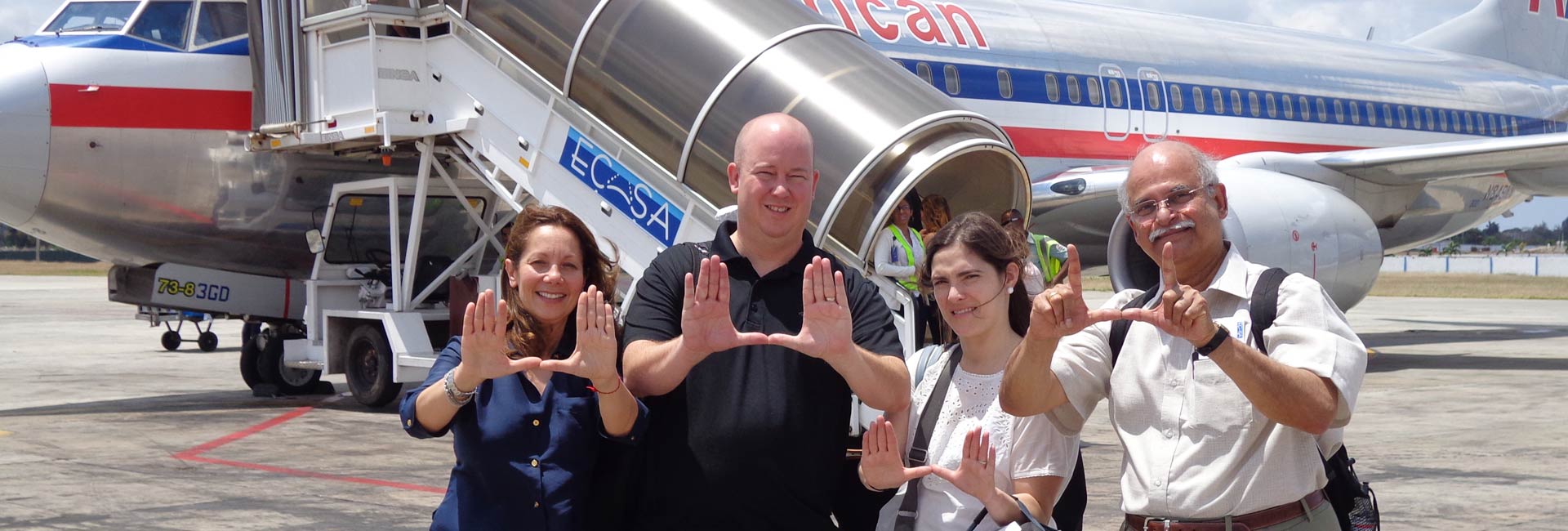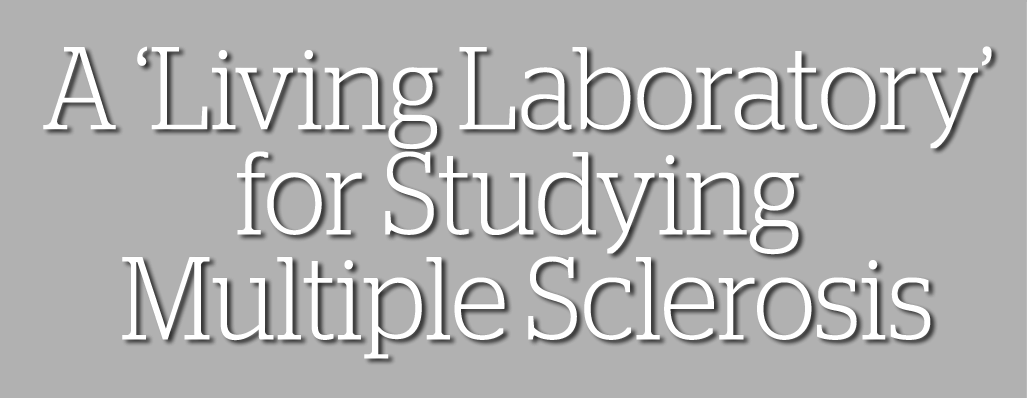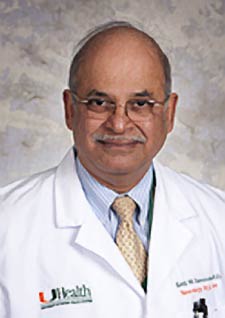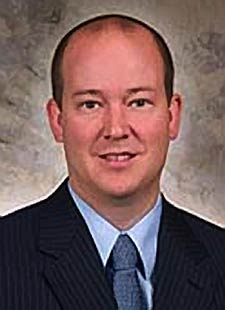

UM doctors and scientists are collaborating with health officials in Cuba to examine the differences in rates of multiple sclerosis on the island and elsewhere.
For multiple sclerosis (MS) researchers at the University of Miami Miller School of Medicine, collaborative studies with Cuban physicians could significantly advance medical understanding of this debilitating disease of the central nervous system.

“In some ways, Cuba is like a living laboratory to study the genetic, viral and environmental issues associated with this disease,” says Dr. Kottil Rammohan, professor of clinical neurology; director of the Multiple Sclerosis Center of Excellence; and chief of the Multiple Sclerosis Division.
While the incidence of multiple sclerosis is rising in South Florida and around the world, in Cuba it appears to be contained, according to Jacob McCauley, associate professor in the Dr. John T. Macdonald Foundation Department of Human Genetics and associate director of the Center for Genome Technology within the John P. Hussman Institute for Human Genomics at the Miller School. “That offers an opportunity to ask why is there a difference?”
In April 2016 the South Florida chapter of the Multiple Sclerosis Society, led by president Karen Dresbach (now retired), organized an exploratory medical trip to Havana that included McCauley, Rammohan and Dr. Leticia Tornes, assistant professor of neurology. “We were able to meet Cuban clinicians and researchers at the Ministry of Health,” says McCauley. “We want to continue those discussions, because there are many things we can learn from each other.”
About the Photo
(Left to right) Karen Dresbach, Jacob McCauley, Dr. Leticia Tornes and Dr. Kottil Rammohan at Jose Marti International Airport, Cuba.
Join the Conversation:
Follow on
Twitter:
UM Miller School of Medicine, @umiamimedicine
University
of Miami, @univmiami
UM News, @univmiaminews

Rammohan says an island-wide survey by noted Cuban neurologist Jose Cabrera Gómez several years ago found the incidence of MS was about seven per 100,000. That rate is well below the 40 per 100,000 in Miami or the 100 per 100,000 in Puerto Rico. “While it’s possible that MS is under reported, Cuba does have a strong centralized diagnostic system for individuals, and the symptoms of MS are well known,” he adds.
Many of today’s Cubans have ancestors who emigrated from Spain 400 years ago, and a significant number of those Cubans migrated to Miami in the 1960s, says Rammohan. “So, we have two genetically similar populations with major differences in the incidence of this disease.”
Genetics play a proven role in the development of MS, says McCauley, who was awarded a $3.1 million collaborative grant from the National Institutes of Health to expand genetic studies of MS within South Florida’s Hispanic population. He noted that Cuba’s lack of immigration and ethnic diversity—as well as a higher rate of smoking and limited dietary choices—are among the epigenetic and environmental issues that could be examined in comparative research studies.
Rammohan says the difference in incidence rates might also be related to a variant in the Epstein-Barr virus, which is a suspected trigger for multiple sclerosis. “The virus found in the U.S. and Western Europe is different from the rest of the world,” he adds. “So, one question to explore is whether the Cubans who came to Miami were exposed to the variant that may lead to MS. Answering that question would require detailed laboratory testing, but the findings could bring us closer to understanding why the incidence of multiple sclerosis is growing around the world.”
- RICHARD WESTLUND / UM News
